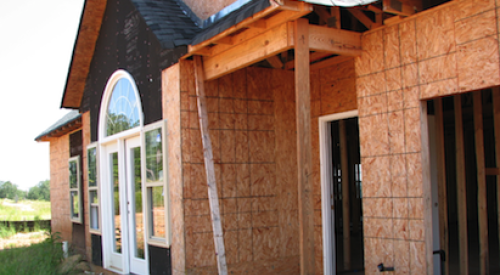Procuring cause — for generations it has been the mantra used for articulating the role of co-op Realtors in new-home sales. Builders have historically viewed the primary role of a co-op Realtor as locating the builder’s home for their client and then introducing them to the community. Procuring cause was viewed as both the primary service of a co-op Realtor and the basis on which they should be paid.
But as any top-performing Realtor today will tell you, the Internet has profoundly altered their role with their clients. While Realtors used to “locate” homes for their clients, today their primary role is to “validate” the home selected by the customer and “negotiate” on their behalf. Research shows that in 72 percent of new-home closings in which a co-op Realtor was paid, the customer (not the Realtor) initially found the home, typically via the Internet, and then engaged their Realtor as an expert third party to validate the price, location, builder, quality, etc.
“Realtors are very important to us today. But it’s a very different role from 10 years ago,” says Brenda Kunkel, president of New Home Builder Services, a Florida-based consulting firm. “When Realtors were the ones who matched homes with clients, they would walk in as our biggest fans. We had their endorsement by virtue of having them bring their customer to our community. That’s not necessarily the case today. With customers finding their home via the Internet and then engaging the Realtor, the Realtor often sees their role as a third-party expert who should raise issues such as short sales and REO properties that can get in the way of a sale that would have otherwise occurred if not for their opinion and advice.”
The new reality for Realtors
So if today’s Realtor is typically tasked to validate and negotiate rather than locate, does it make sense to pay them their full commission for simply walking into your sales office with a customer who becomes a homeowner? I think the answer is no. But before you cancel your current Realtor commission policy, you want to walk gingerly into this brave new world.
First, remember that while nearly three-quarters of customers found the new home on their own, 28 percent of co-op homeowners truly found their home based on the recommendation of the Realtor. The last thing builders want is to discourage Realtors from recommending their community.
Second, even though the Realtor may not have found your home, that doesn’t mean they’re not involved in getting the deal completed. Talk of a builder not paying a co-op Realtor commission to a Realtor who brings them a buyer would travel faster than an F35 fighter jet on patrol over Afghanistan.
Builders would be better advised to continue to offer the co-op commissions to all Realtors based on a first-visit registration. However, given the new reality of today’s Realtor duties, some builders are offering a bonus of 1-2 percent to Realtors who complete a training course on the builder’s business, including construction quality, customer satisfaction ratings, warranty coverage, professionalism of the sales team, and fair pricing practices.
These “VIP Realtors” receive a certificate upon the completion of the course work (a one-hour class) and are given a credit card that they can use when they register a prospect, which would automatically entitle them to the added commission. The classes are offered to individual Realtors or (preferably) to entire realty office whose associates can become a preferred office. The math makes sense to the participants: an hour of your time for thousands in added commissions.
To be clear, the goal of this program is not to overpay co-op Realtors, but rather to educate them so they will enthusiastically endorse both the builder and their pricing.
“Our emphasis today is to find ways to earn the Realtor’s endorsement of our community,” says Rick Vale of Daniel Island Development, a master-planned community in Charleston, S.C. “While we used to focus primarily on showing off our home inventory to Realtors, we now turn more attention to making Realtors ambassadors of our community, our quality, and our trust. The customers can find our homes on the Internet. We need the Realtor’s stamp of approval to reinforce their client’s decision.”
Strategies for reaching Realtors
Communication is the second part of this new Realtor reality. Realtors are inundated with builder promotions, so how do top builders stand apart from the pack?
Melissa Morman, VP of Builder Homesite Inc., Austin, Texas, offers the three most important aspects of a successful e-mail campaign:
- Begin with an enticing subject line in the e-mail. “A complimentary dinner for you and your client” or “Free upgrade kitchens with 10 homes in March” or “10 homes paying 100 percent of commission up front” will get opened far more frequently than “News from Trace Terraces Builders.”
- Have a clear call to action above the fold. The most pertinent information should be shown in the top 25 percent of the e-mail. Remember, an e-mail is not an electronic version of a print advertisement. Users need to see and understand the offer in just a few seconds or they will eliminate you.
- Have a concise, honest message. More Realtor e-campaigns fail for trying to say too much rather than too little, says Morman. No need for tricks, just the facts, please. And keep it simple. Too many qualifications on a promotion will put both you and your company in the permanent junk e-mail folder.
It’s easy to get carried away with Realtor e-blasts, particularly by well-intended new-home sales professionals who are looking for more traffic or who have a high-pressure boss breathing down their neck. Don’t fall victim and become a spam spreader. Utilize the “Goldilocks” approach with your Realtors — not too often, not too seldom, just right. Research shows that you need to communicate with a Realtor once every 16 days or you’ll begin to lose awareness. What’s less easy to quantify is that the quality of your message is far more important than the frequency of your connection (see sidebar on top e-marketing Realtor turn-offs).
Price negotiations
The final piece of the new Realtor reality is setting appropriate expectations on price negotiations. In a buyer’s market, it is certainly true that many customers and their Realtors will play hardball during negotiations to get the best deal possible.
“We understand that everyone is looking for a deal,” says Gus Sankers, president of Group IV Properties, Jacksonville, Fla. “What we attempt to do with Realtors is educate them early in the process on where our negotiation boundaries lie. It’s a lose-lose scenario when the Realtor gives the buyer an impression that we will discount our homes far more than is possible. Not only do we lose the deal, but it frustrates the buyer and the builder, and the Realtor doesn’t earn a commission.”
This doesn’t mean that the builder can stand on an “it’s our price or the highway” strategy, says Sankers, only that Realtor negotiations are based on a fair price. “If a Realtor comes in and shows me a new home down the street that’s truly a better value, then, yes, we will look hard at our price,” he says. “But just saying that every builder in our market is discounting their prices by a certain percentage, so we should, too, is never going to arrive at a fair price.”
Few would disagree with the notion that the role Realtors play in home sales has fundamentally changed during the past decade. The question is which builders are going to adjust their Realtor programs to embrace this new reality and win the battle for meaningful relationships with the Realtor community.
John Rymer is president of Rymer Strategies Inc., a Tampa, Fla.-based real estate marketing and sales consulting firm. He can be reached at john@rymerstrategies.com.
4 tips for maximizing Realtor relationships
- Keep in mind that customers no longer rely on Realtors to find their home — Most homeowners who used a Realtor reported finding their home on their own.
- Focus on earning their endorsement — Good quality, great value, and trust are what Realtors look for when recommending builders and communities.
- Educate them on negotiation — Realtors’ role now places more emphasis on negotiation. Use your relationship to set the expectations and minimize unreasonable offers.
- Ditch the spam emails — Awareness is essential, but too many meaningless e-blasts shows a lack of respect for their time and will delegate you to their junk e-mail basket.
Top E-marketing turn-offs for Realtors
- Out-of-date prices/spec home listings on your website — Nothing frustrates a Realtor more than driving to a new-home subdivision with their hot prospect only to discover that the home listed on the Web site that met the price and delivery date of their client is no longer available.
- Builder ad masquerading as e-mail offer — Realtors are not interested in seeing pretty pictures of one of your kitchens filled with happy people. In today’s competitive environment, just provide the facts, please.
- E-mail attachments — Attaching a public relations story or copy of a print ad only wastes the Realtor’s time. If you have something truly worth seeing, include it in the main body of the e-mail.
- E-mail distribution list that is visible to everyone on the list — Privacy counts. Don’t abuse the trust of a Realtor by showing the rest of the world their e-mail address.













